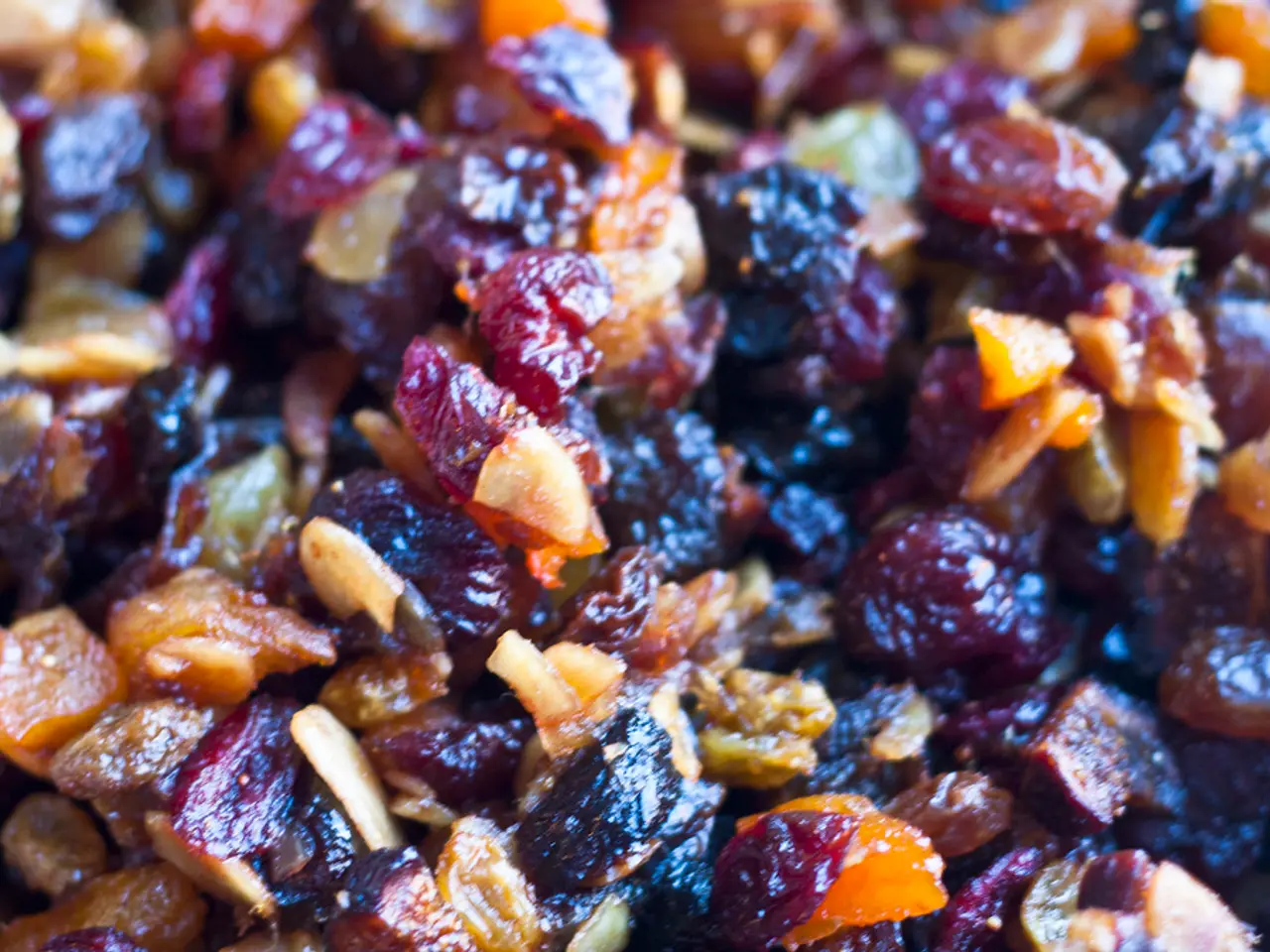Probiotic-Rich Foods: Exploring Kimchi, Kefir, and Kombucha - Unraveling Their Benefits
For centuries, fermented foods like kimchi, kefir, and kombucha have been a staple in traditional diets across the world. These foods, rich in probiotics and bioactive compounds, offer a myriad of health benefits, particularly in promoting gut health, digestion, immunity, and overall well-being.
Kimchi: A Spicy Probiotic Powerhouse
Kimchi, a spicy Korean delicacy, is a fermented vegetable that provides both prebiotic fibers and probiotic microbes. Its fermentation increases the bioavailability of antioxidants, organic acids, and functional metabolites like γ-aminobutyric acid (GABA), which may reduce inflammation, improve cholesterol levels, and enhance gut microbiota balance. This synergy supports improved digestion, immune function, and may reduce risks of chronic diseases such as obesity and cardiovascular disease. Studies also show kimchi can improve glucose tolerance and metabolic health.
Kefir: A Superfood for Gut Health
Kefir, though less detailed in the search results, is widely recognized as a fermented dairy product rich in probiotics that aid digestion by enhancing the breakdown and absorption of nutrients. Its fermentation increases bioactive compounds and vitamins, supporting nutrient bioavailability and digestion efficiency. Kefir’s probiotics contribute to strengthening the gut barrier and modulating immune responses, potentially lowering infection risks. Its rich probiotic profile also likely helps regulate inflammation and supports overall gut microbiome diversity.
Kombucha: A Fountain of Probiotics and Bioactive Compounds
Kombucha is a fermented tea containing beneficial microbes and bioactive compounds that can support liver and gut health. It can enhance digestion and has potential anti-inflammatory effects. Careful selection is required to avoid added sugars or harmful additives that might negate benefits. Kombucha's probiotics help maintain a balanced gut microbiota, contributing to immune health and digestive function.
In summary, these fermented foods contribute to:
- Gut health: By introducing beneficial probiotics that help balance the gut microbiome and providing prebiotic fibers (in kimchi), they support microbial diversity and function.
- Digestion: Probiotics enhance the breakdown and absorption of nutrients, improve gut motility, and may relieve digestive discomforts such as bloating and nausea.
- Immunity: A healthy microbiome strengthened by fermented foods improves the gut barrier and modulates immune pathways, potentially reducing inflammation and infection risks.
- Overall well-being: Emerging research on the gut-brain axis suggests that fermented foods' influence on gut health may also positively affect mood and cognitive function.
While kimchi, kefir, and kombucha vary in their specific microbial compositions and nutrient profiles, their shared fermentation process creates health-promoting compounds that are biologically active in humans, offering multidimensional support for digestive, immune, and systemic health.
- Incorporating kimchi into one's diet could potentially reduce inflammation, improve cholesterol levels, and contribute to balanced gut microbiota, thus supporting digestive health and immune function.
- Consuming kefir, a fermented dairy product, boosts the absorption of nutrients by enhancing the breakdown and absorption process, while also aiding in strengthening the gut barrier and modulating immune responses.
- Kombucha, a fermented tea, can benefit liver and gut health by enhancing digestion and possessing potential anti-inflammatory effects, as well as maintaining a balanced gut microbiota for better immune health and digestive function.
- Fermented foods like kimchi, kefir, and kombucha not only contribute to gut health but also promote overall well-being, as recent studies suggest a link between gut health and mood, cognitive function, and general health.
- A diet rich in fermented foods like those in the health-and-wellness and fitness-and-exercise realm, such as kimchi, kefir, and kombucha, supports digestion, immunity, and systemic health due to their shared fermentation process creating biologically active, health-promoting compounds.




